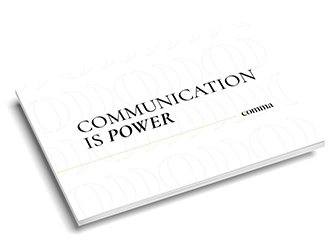Account manager, account executive, PR specialist, consultant, communication technician, account manager… The world of professional positions and roles in the communication sector is sometimes unfathomable, it varies a lot from one company to another, and it can be confusing for those who start their career and try to decide which profile is the closest to their skills, plans and career development expectations;
We try to clarify the most important aspects of the communications professional within a consultancy, for those considering starting out in the industry.
Main functions of the account manager
It is difficult to pinpoint a specific profile within the management and account management of a consultancy firm, as communications work is, by its nature, very diverse and can encompass a multitude of responsibilities and skills ranging from taking care of the relationship with the client and the media, to developing strategies and communication plans, to managing multidisciplinary work teams, managing projects in their various phases of execution, writing and editing texts and documents or participating in the creative process of communication and marketing campaigns.
In comma we understand the communication strategy as a tool that should cut across all areas and departments of an organisation, and that should be integrated into the heart of any of them. As responsible for managing and implementing this strategy for different clients, an account manager shall have among its main responsibilities:
Strategy, strategy, strategy
Be clear, not only about the KPIs to be achieved on a weekly and monthly basis, which serve to measure and value the work done, but also the medium and long term objective, which will be marked by a well-founded and planned strategy that will mark the way forward;
Without a strategic and forward-looking vision, communication work is done blindly; as account manager, understanding this strategy and coordinating with account management to ensure this constant alignment is critical.
Align communication objectives with the mission and vision of the organisation
Closely related to the previous one, among the responsibilities as a account manager is to ensure that communication responds to the intrinsic values of the company; Ensuring consistency in brand messaging and positioning is part of the job, and it will sometimes be necessary to question actions that compromise this consistency, or at least to draw attention to any perceived contradiction or reputational risk;
Control and supervision of the entire activity: from clipping report to the annual strategic plan
I’m not much of a football fan, but in this case I’ll use a simile that I think everyone will understand: whoever plays the account manager fulfils a role similar to the captain/captain of a football team on the field.
Whereas the person who manages the account is the one who, from the sidelines, sees everything, allocates resources, makes strategic decisions… un/a account manager controls the day-to-day running of the activity, supervises the team, distributes play and ensures that quality is maintained and objectives are achieved. This ranges from reviewing all deliverables to overseeing the pre- and post-campaign tasks for each campaign or communication action;
Coordination with other key departments inside and outside the agency
Communication, as we know, is multi-channel, multi-directional, multi-format and multi-audience; therefore, account teams working on day-to-day customer communication must also work with many other internal and external teams: design, social media managers, creativity, translation and copywriting…
It will be the account manager job to ensure thecoordination of the different departments so that they support each other and optimize resources.
What do you have to study to become an account manager?
In the past, communication professionals were landing in this world in different states of weariness/boredom/curiosity/despair/despair from the idealised world of journalism.
However, and fortunately, communication as a profession linked to journalism but differentiated has been professionalised and today there are a multitude of university studies in this field: journalism, audiovisual communication, public relations, marketing and advertising… which can be combined with other disciplines such as history, economics, art, philosophy…
- Understand the science and art of communication
- Understanding how the media ecosystem , works (and survives), which has been in crisis for decades but continues to set the information agenda of governments, citizens and companies.
- Specialisation: many people can have common sense and learn to communicate well, but in the age of hyper-personalisation and extreme audience segmentation, it is highly recommended to specialise in those sectors or industries that are more attractive to us or in which we at least have more experience or contacts; Scientific, political, financial or legal communication are examples that certainly require professionals who know their sectors in depth and are good at using technical language;
- Be fluent in several languages: in case the global events of the last few years have not made it clear, we live in an interconnected world in which the more languages you speak (including programming languages, sign language, verbal and non-verbal languages…), the more you will be able to develop your career with satisfaction;
I hope these brief outlines have served to make our work more understandable, and to clarify the roles to be played by any account manager who wants to manage accounts and communication projects. If you think we’ve left any important points out… please do get involved in the comments!






